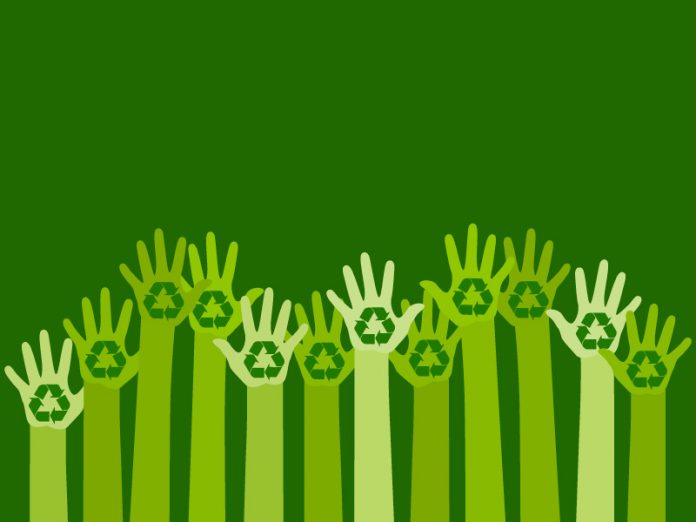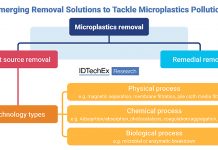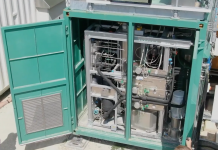Chemical recycling continues to attract a wealth of investment in Europe and is still seen by many as the only potential way to meet mass-scale food-contact recycled material content targets for most polymers.
As a result, new pilot plants are expected to continue to emerge in 2022. Nevertheless, a number of legislative and infrastructure challenges continue to face the industry.
The EU Commission stated in late 2020 that it would take a decision in 2021 on the legal status of chemical recycling based on its cradle-to-grave life-cycle impact. This has failed to emerge.
Current EU regulations typically use the definition of recycling set out in Directive 2008/98/EC, in which recycling is “any recovery operation by which waste materials are reprocessed into products, materials or substances whether for the original or other purposes.
It includes the reprocessing of organic material but does not include energy recovery and the reprocessing into materials that are to be used as fuels or for backfilling operations.” This leaves the regulatory status of chemical recycling under the proposals uncertain.
EU definitions on the legal status of chemical recycling are becoming increasingly pressing for the industry following the EU Commission’s proposals in November to overhaul current rules surrounding the export of waste.
Several players have said that the new proposals would make it more difficult to export waste, particularly for chemical recyclers.
Of particular concern to some waste managers is the EU allowing modification of waste measure to be up to individual countries, which they fear would lead to significant regulatory divergence.
The Commission is proposing an EU-wide system to electronically exchange documents and information, which would allow authorities to better monitor waste streams.
Materials not listed on the EU’s green list and destined for recovery operations will require prior written consent and approval from relevant authorities in both the sending and receiving countries.
Shipments of waste for disposal in other member states will be broadly restricted under the proposals. Mixing waste streams during shipment will also be prohibited under the proposals.
CONSULTATION BEGINS
In December, the Commission issued new draft legislation for consultation on changes to food-contact recycled material regulations, which would encompass both mechanical and chemical recycling.
Along with restrictions on the type of input waste used for recycling to food contact, the legislation would mandate the use of “suitable technologies” for recycling waste, which currently only include mechanical polyethylene terephthalate (PET) recycling, and closed-loop recycling originating from a food distribution chain or catering service in a closed and controlled chain.
The legislation would cover both mechanical and chemical recycling processes.
Nevertheless, there is an exemption from the regulation for plastic waste used to manufacture substances under Article 5 of Regulation (EU) No 10/2011, as long as they are intended for subsequent use in accordance with that Regulation. This would appear to potentially exempt chemical recyclers reverting material back to monomers.
The consultation period was open until 10 January 2022.
There is currently 364,000 tonnes/year of operational chemical recycling capacity in Europe, of which 218,000 tonnes/year (or 60%) is pyrolysis based, data from the ICIS Chemical Recycling Supply tracker shows.
With new chemical recycling plant volumes frequently being announced, this volume is expected to increase in the coming years, even as the majority of plants remain at pilot or lab scale.
One challenge facing pyrolysis-based chemical recycling start-ups is the sheer number of different input waste types that can potentially be used in the process, which typically requires extensive testing of different types of input waste to see which will deliver within specification at the lowest cost.
70% mixed-polyolefin, 90% mixed-polyolefin, or RDF-reject bales are commonly used, depending on what sorting facilities chemical recyclers have on site.
Prices of mixed-polyolefin bales suitable for mechanical recycling have increased sharply during 2021, as a result of high prices of mono-sorted material making the use of mixed-polyolefins increasingly economically viable for mechanical recyclers.
With pyrolysis-based chemical recyclers not wanting to compete with mechanical recycling on ideological grounds, and process costs expensive before the variable cost of bales is accounted for, pyrolysis-based chemical recyclers are increasingly shifting away from the use of mixed-polyolefin waste.
Process costs from plant to plant remain too variable to give estimated production costs and are highly dependent on factors such as yield, technology and logistics.
Nevertheless, some players spoke of costs in triple figures due to rising electricity costs – with pyrolysis typically an energy-intensive industry.
This has also led to differences in costs from country to country, with energy prices in France, for example, typically lower than other parts of Europe due to the prevalence of nuclear energy.
COSTS SET TO FALL
It is expected that pyrolysis-based chemical recycling costs will fall as technology and economies of scale develop and the market matures.
Historically, mixed polyolefins have been the feedstock of choice for pyrolysis-based chemical recyclers because of the need to limit PET (which oxidises and does not depolymerise via pyrolysis), chlorine (which is corrosive), nylon and flame retardants content in its input material.
At the same time, high energy costs are making burn for energy more attractive and the RDF market is growing, particularly from the cement industry.
While most pyrolysis-based chemical recyclers are eager to avoid competition with mechanical recyclers for ideological reasons, this is placing them in direct competition with the RDF sector due to a lack of sufficient infrastructure to meet expected future demand.
ICIS has launched a new mixed plastic waste pricing service. Details at clientsuccess@icis.com.










